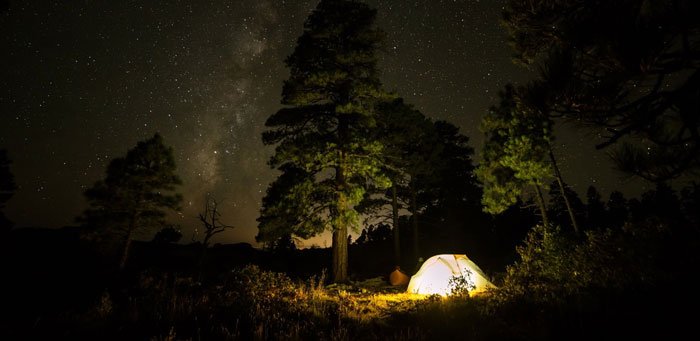Planning a camping trip for the first time can get overwhelming. You need to think about where you are going, what to bring, and what activities you will be doing. But whatever you come up with, the important thing is you will enjoy your trip.
To give you some help, we have compiled some of the most common mistakes people make when camping. Make sure to take note of these to avoid problems!
Here we go:
1. Forgetting to Inform Others of Your Trip
Before you leave, don’t forget to inform people close to you about your camping trip. This is especially important if you are camping with kids or you’re going somewhere dangerous. For example, climbing huge rocks and going to dense woods.
2. Arriving During the Hottest Period of the Day
It’s better that you arrive at the campground before 11:00 AM or after 3:00 PM. This allows you to prepare everything when the temperature is tolerable.
3. Setting Up Your Camp at Night

There are three reasons why it’s not a good idea to wait for night time to set up your camp. First, you won’t have a clear view. Most likely, you won’t assemble your camp properly, especially if you are a first-timer.
Second, there is a potential danger if you are camping in the woods. Third, you might disturb other campers who are already resting. So, make sure to camp during the day, but make sure it’s not during the hottest time.
4. Buying Expensive Gears
If it’s your first time to camp, then it’s totally understandable that you get overly excited. But, don’t let it get to you by buying expensive equipment and outdoor camping gear. You don’t need to get the fanciest camp and high-tech gadgets. If you don’t have a tent yet, you can find really good ones at reasonable prices. Just make sure that it is weather-proof and you are good to go.
5. Too Much Packing
This is another concern when you get really excited about camping. This is even more important if you plan to hike. Make a list of what you really need and start from there. This avoids you bringing unnecessary things that might hinder you to have fun during your trip. Think about how much you can carry while on a long hike. If you can still bring more, then it’s fine to bring other stuff.
6. Wearing Clothing Made From Cotton
Many people find cotton to be really comfortable. While this is true, it is not advisable to wear cotton when going on a camping trip. Cotton and other fabrics, such as rayon and wool, don’t absorb sweat like the synthetic ones. This could cause both hypothermia and overheating.
7. Not Bringing Warm Clothing
Even if you have checked that the day would have a warm temperature, you still need to bring warm clothes. In many cases, the weather can be unpredictable. You can never be too sure whether it will rain or not. Plus, camping in the woods can get really cold at night. To be prepared, include warm clothes on your priority list.
8. Forgetting to Bring Toilet Paper
Many don’t realize it but toilet paper is one of the most important essentials to bring when camping. Sure, your campground site may have restrooms available. But, don’t rely on them fully. When the location is jam-packed, the staff can’t accommodate everything. Therefore, there is a high chance that rolls of toilet paper in restrooms are not refilled right away. Plus, toilet paper can be used in other things, especially when you are hiking.
9. Bringing Your Pet Without Checking Campground Rules
If you plan to bring your pet, make sure to check rules and regulations before picking a campground site. Remember, not all locations allow campers to bring their pets.
10. Leaving Your Area Dirty
Leaving food scattered around will attract wild animals, such as bears and squirrels. This could lead to potential danger not just to you, but to other campers as well. Also, leaving the area after camping is a huge mistake many campers commit. It is basic camping etiquette to leave your camping ground the way you have arrived. So, remember to clean everything up each time you are not in your camp area.
11. Not Bringing a Sleeping Pad
If you are going to sleep in a tent, a sleeping pad is really useful. You may have a sleeping bag but it does not protect you from the hard ground. A sleeping pad allows you to sleep comfortably through the night. If you don’t have one, don’t worry! There are so many affordable sleeping pads available both in online and offline stores.
12. Choosing a Low Campground
A low campsite is not good when it starts to rain. As mentioned, you will never know when it will rain. Even the driest places can get flooded easily, especially when the rain is strong. So make sure to choose a location that does not really get affected in case it starts raining.
So these are the common mistakes you must avoid when camping. There are still others for sure, but you can start considering these. Hopefully, this post can help you make the most of your vacation! Good luck and enjoy your trip!


